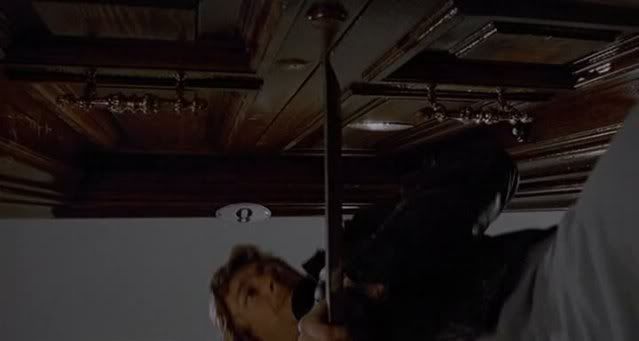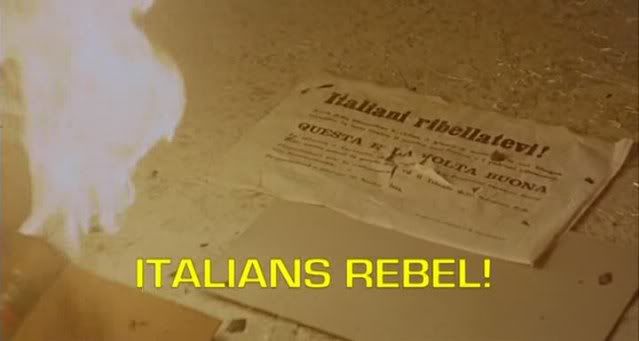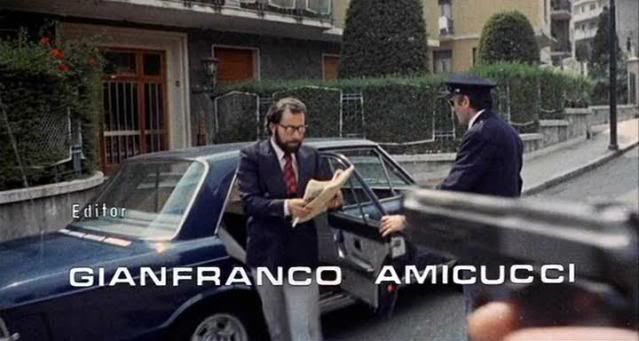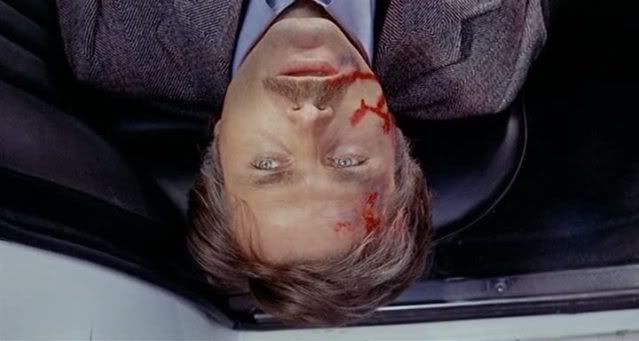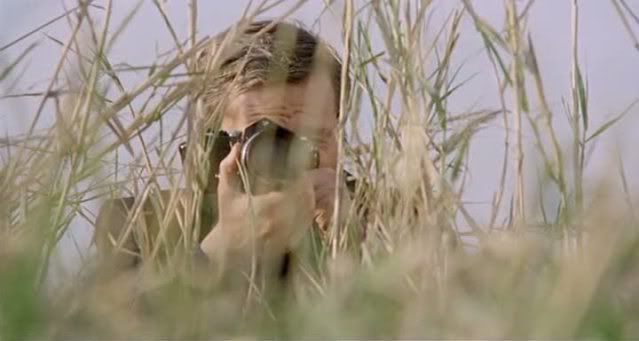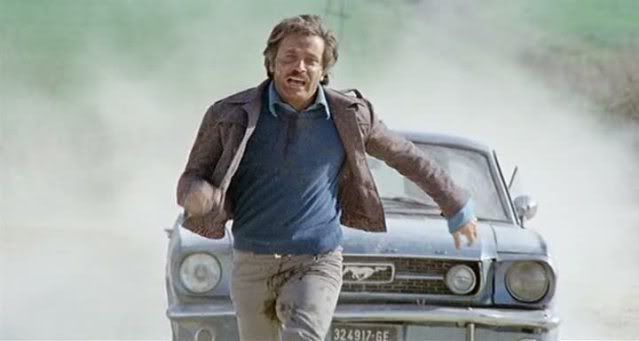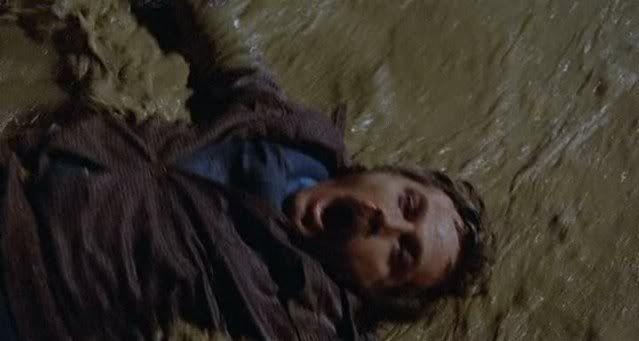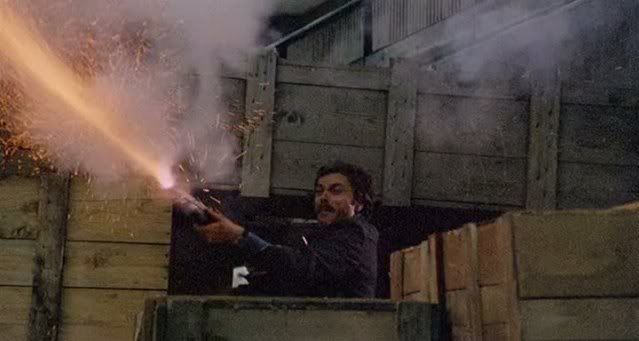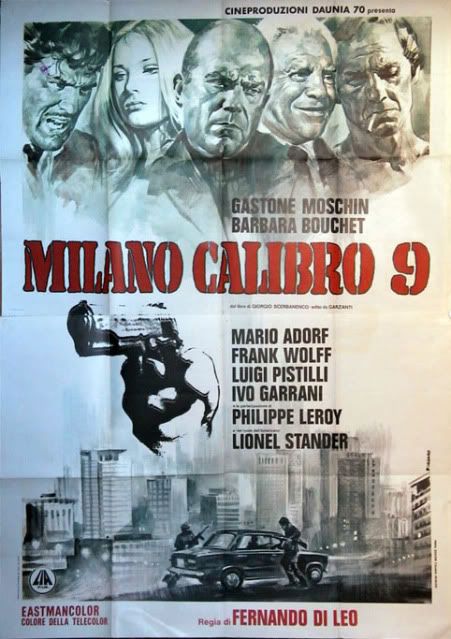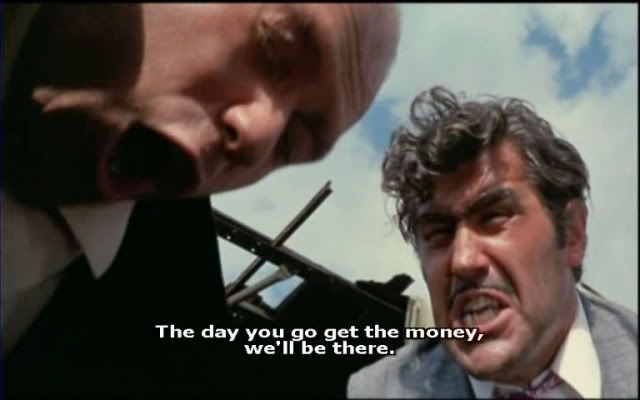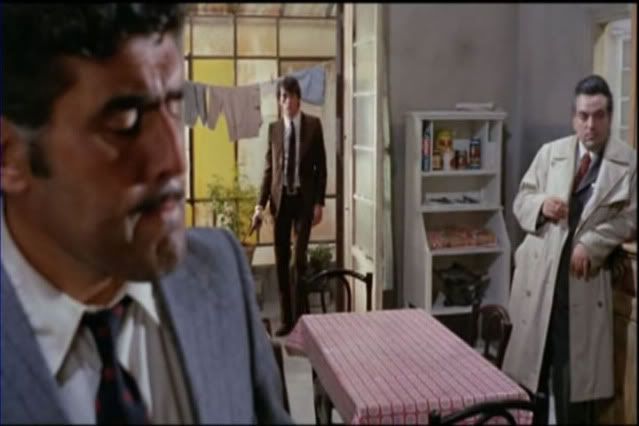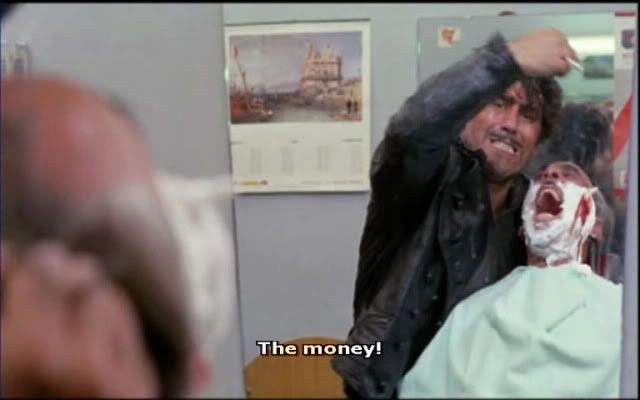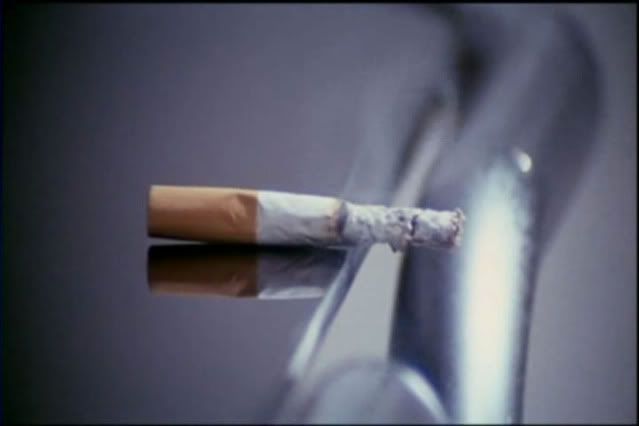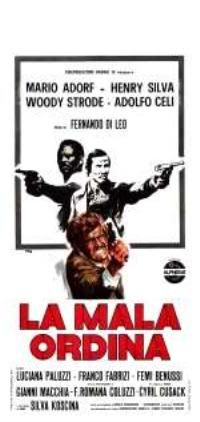Another oldie/shorty review for you.
Original Title: Quelli che contano
Year: 1974
Director: Adelchi Bianchi, Andrea Bianchi
Writer: Piero Regnoli (screenplay), Sergio Simonetti (story)
IMDb: http://www.imdb.com/title/tt0154468/
Genre: Eurocrime
"It's a song... a vibration in the air..."
 synopsis:
synopsis:An assassin is employed by the mafia to take care of a couple southern gangs who are smuggling drugs in the corpses of young children. He plots to have the two gangs work against one another, working his way into both, and becomes more and more personally involved.
What we have here might be the first assassin to ever drive a VW bug! Henry Silva plays the stone faced assassin Tony Aniante in this gritty mafia crime film. He's sweaty, mean, and very quiet throughout the entire story... a role perfect for Mr. Silva! Forget police involvement here... this one is all gangsters and nastiness (except for a brief autopsy scene at the intro). You'll probably notice that Mr. Silva sports his heavy looking suit throughout the whole film despite constantly toweling off and looking as if he is sweltering.
The film opens with a man driving across the French/Italian border with a woman holding what appears to be a sick child in the back. They are in a car accident, killing everyone (there is a great, cheap cheap cheap severed head here!) Autopsies show that the child was murdered previously, as they open him him up to reveal vials of heroin in his emptied out torso. Tony Aniante is brought in by the Dons to put a stop to the gangs in the south who are using this atrocious practice of killing children to smuggle the heroin.
The film at times is very reminiscent of westerns, for example as Tony walks through town and towsfolk close themselves up in their homes as he passes. Tony is a very quiet, solitary figure, and often we are given a very hot, arrid landscape for the story to unfold in. The score that is whistled is almost out of Morricone's The Good, The Bad, and the Ugly score, and actually plays a part in the plot here.
The film is well acted for something in this genre even though it is English dubbed. The performances are for the most part serious, and understated. Not the greatest, but fine for what this is. Silva's fight scenes are entertaining with his chops and backhands!
Barbara Bouchet is pretty bad in her role, which I'm pretty sure is par for her course (mmmm.... Bouchet coooourse) but she makes up for it by being half naked/topless half the time, taking a milk bath while touching herself, or fellating a banana at the dinner table.
Yes, please.
There is a sex scene with Ms. Bouchet in there that I am not sure had been or ever will be again put to film. Not that it is all that graphic, but it is very degrading to her, almost to the point of humor. I'll leave this one up for you to find. I'll just say this poor character is not treated well at all in the film. Oink, oink.
I liked the direction of the film, the setting, sound effects, scene set ups... they were all solid. There are some nicely shot scenes in here with interesting camera angles during fights as we are given a first person perspective at times with kicks, punches, etc. It gets gory at times, but for the most part it's the fake red tempura paint blood and chewed up bubblegum head wounds. It works though. The story was decent as well; as I said above, it plays like a Western with the lone gunman coming into town and helping to rid that town of some tyrants one way or another.
This was a solid film. I enjoyed it quite a bit, and I would recommend it to anyone finding it interesting after reading this.
Score: 6 / 10








